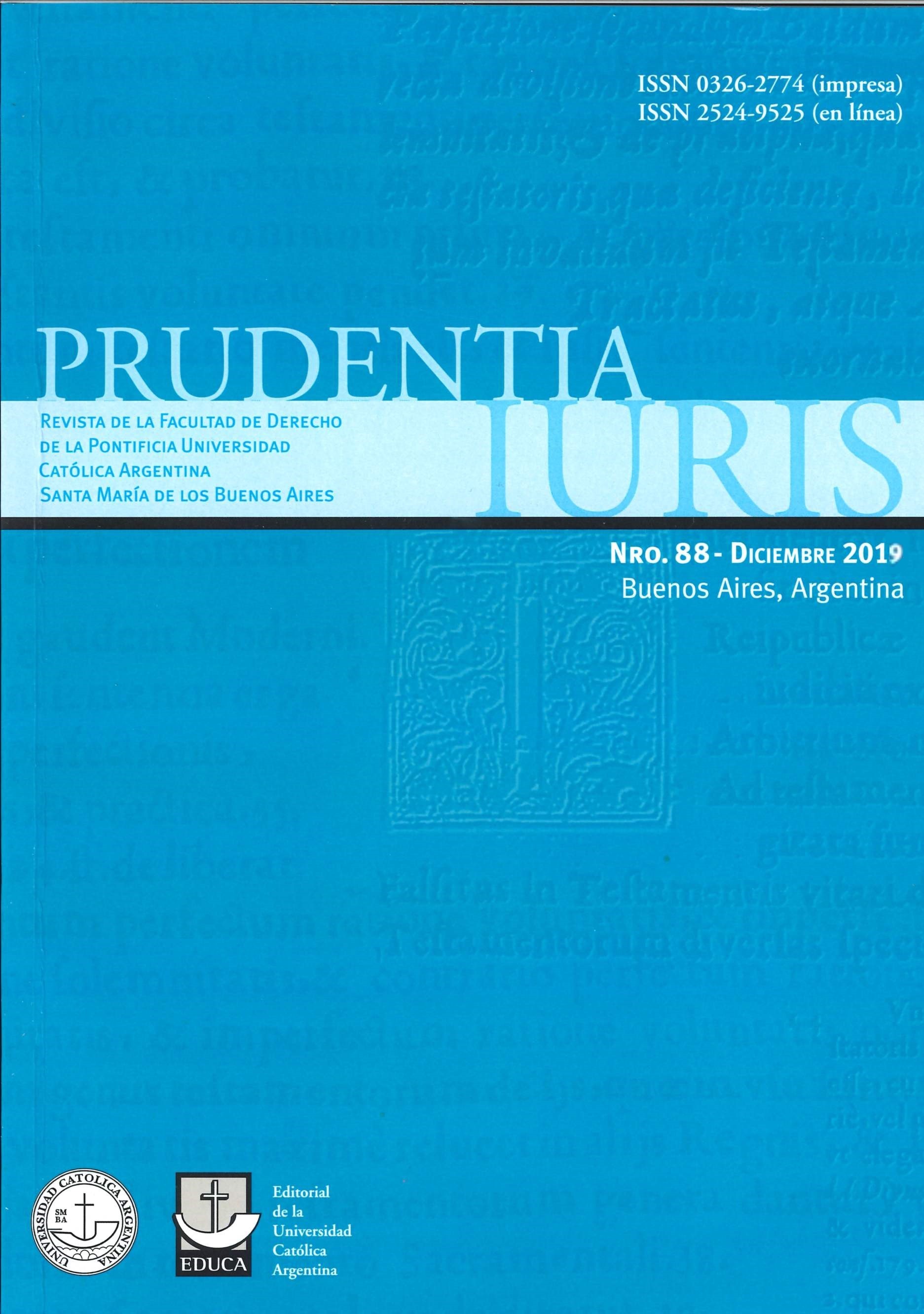Análisis económico del federalismo. El caso del Río Atuel.
Palavras-chave:
Federalismo, Río Atuel, Jurisdicción dirimente, sustentabilidad, eficienciaResumo
El texto analiza el conflicto entre la Provincia de Mendoza y la Provincia de la Pampa sobre el aprovechamiento del Río Atuel, a través de la jurisdicción dirimente de la Corte Suprema de Justicia de la Nación, que se expidió en dos ocasiones sobre el tema. Se hará hincapié en las notas tradicionales e históricas que caracterizan al federalismo, contrastadas con el paradigma de la sustentabilidad. Para ello se utilizará las herramientas del análisis económico del derecho. Asimismo, se formulan reflexiones sobre el acierto de la competencia dirimente de la Corte Suprema y por último se señalan los desafíos que plantean el cambio de enfoque sobre el conflicto.Downloads
Referências
-"Convención de Lucha contra la Desertificación" -aprobada por ley 24.701.
-"Convenio sobre Diversidad Biológica", -aprobado por ley 24.375.
-Arroyo Gil, A. (2019), El Federalismo Alemán A Comienzos Del Siglo XXI. Fundamentos. Cuadernos monográficos de teoría del estado, derecho público e historia constitucional, Nro. 10, 59.
-Bidart Campos, G. (2004) ¿Un federalismo cultural?, A 10 Años de la Reforma Constitucional, Buenos Aires, Lexis Nexis,.
-Bidart Campos, G. y Sandler, H. (coord.) (1995) Estudios sobre la Reforma Constitucional de 1994, Buenos Aires, Depalma.
-Bojanich Marcovich, E.; Cotta, R.; Pontussi, E, (1980), El Rio Atuel es interprovincial, Gobierno de la Provincia de La Pampa.
-Branfman, Cohen & Trubek, (1973) Measuring the Invisible Wall: Land Use Controls and the Residential Patterns of the Poor, Yale Law Journal, Nro. 82, págs. 483.
-Cashin, S. D. (1999), Federalism, Welfare Reform, and the Minority Poor: Accounting for the Tyranny of State Majorities; Columbia Law Review, Nro. 99, 552.
-Coase, R. (1960), The Problem of Social Cost, Journal of Law and Economic, 1.
-Cohen, J. E. (1995) A Constitutional Safety Valve: The Variance in Zoning and Land-Use Based Environmental Controls, Boston College Environmental Affairs Law Review, Nº199, 307.
-Cooter, R. y Ullen, T. (1998), Derecho y Economía, México, FCE, 475-480.
-Demsetz, H. (1967) Toward a Theory of Property Rights, The American Economic Review, Vol. 57, No. 2, Mayo, 347-359.
-Easterbrook Frank H. (1984), The Court and the Economic System, Harvard Law Review, V. 98, Nro. 4, 4.
-Fallon, R, Jr.(2001), Stare Decisis and the Constitution: An Essay on Constitutional Methodology, New York University Law Review, Nro 7, 570.
-García Mansilla, J. y Ramírez Calvo, R. (2006), Las Fuentes de la Constitución Nacional. Buenos Aires. Lexis Nexis, 1° ed.
-Gelli, Constitución de la Nación Argentina. Comentada y concordada. 5º ed. Buenos Aires, Ed. La Ley, 2018, Tomo II, pág. 743.
-Giles, S. (2011) The Supreme Court and Legal Uncertainty, DePaul Law Review, Nº60, 311.
-Kirsten, H. E. (1997), State Environmental Standard-Setting: Is There A “Race” And Is It “To The Bottom, Hastings Law Journal, Nro. 48, 271.
-Linares Quintana, S. V. (1987) Tratado de la Ciencia del Derecho Constitucional, Buenos Aires, Plus Ultra, T. IX, 804.
-Oates, W. (1977) Institutos de Federalismo Fiscal, Madrid, Instituto de Estudios de Administración Local.
-Olson, M. (1965), The Logic of Collective Action: Public Goods and the Theory of Groups.
-Olson, M. (1969) The Principle of "Fiscal Equivalence": The Division of Responsibilities among Different Levels of Government, The American Economic Review, V. 59, Nº 2, 479.
-Ostrom, E (2009) El Gobierno de los Bienes Comunes. La Evolución de las Instituciones de Acción Colectiva. México, Fondo de Cultura Económica.
-Ostrom, E. and Gordon W. (1999), ‘Does Local Community Control of Police Make a Difference?’ en Michael D. McGinnis (Editor), Polycentricity and Local Public Economies: Readings from the Workshop of Political Theory and Policy Analysis, Michigan, University of Michigan.
-Paulsen, M. (2000), Abrogating Stare Decisis by Statute: May Congress Remove the Precedential Effect of Roe and Casey?, Yale Law Journal, Nro. 109, 1535.
Paulsen, M. (2005), The Intrinsically Corrupting Influence of Precedent, Const. Comment. Nro 22, 289.
-Porto, A. (Director) (2004), Disparidades Regionales y Federalismo Fiscal, La Plata, ULP, 44.
-Putnam, R. (1994), Cómo hacer que la Democracia Funcione, Venenzuela, Galac, 57.
-Revesz, R. L. (1992) Rehabilitating Interstate Competition: Rethinking The “Race-To-The-Bottom” Rationale For Federal Environmental Regulation, en NewYork University Law Review Nro. 67, 1210.
-Sagüés, N.P.(2003), Elementos de Derecho Constitucional, Buenos Aires, Astrea, 3ª ed., T. 2, 35.
-Shapiro, D. L. (2008), The Role of Precedent in Constitutional Adjudication: An Introspection, Texas Law Review, Nro 86, 929.
-Spota, A. A. (1990) La Corte Suprema de Justicia de la Nación como parte del poder político del Estado, La Ley, T. B, 979.
-Sullivan, Kathleen (1989), Unconstitutional Conditions, Harvard Law Review, V. 102, Nº7, 1413.
-Tushnet, M. (1985), Federalism and the Traditions of American Political Theory, Georgia Law Review, Nro.19, 981.
-Wats. R. (2006), Sistemas Federales Comparados. Trad. Esther Villadangos. Madrid, Marcial Pons, 136.
Downloads
Publicado
Como Citar
Edição
Secção
Licença












